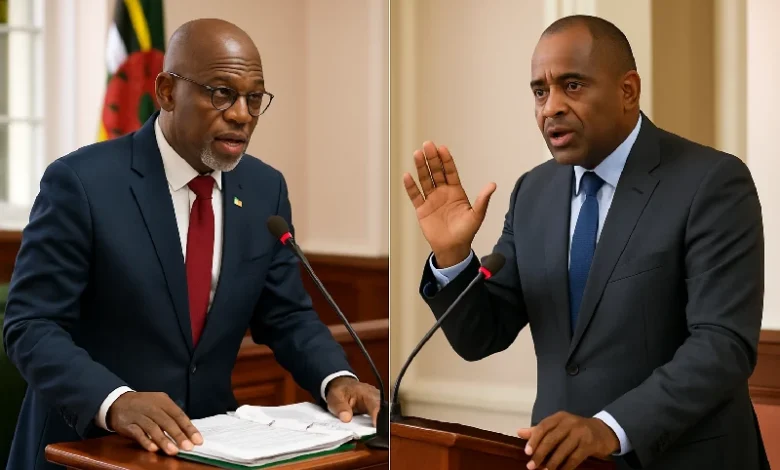Budget Debate in Dominica

Budget Debate in Dominica refers to the formal parliamentary process by which the national budget is examined, critiqued, and approved by the House of Assembly. This annual event is central to fiscal governance, transparency, and policy direction in the Commonwealth of Dominica. It typically follows the presentation of the national budget by the Minister for Finance and includes contributions from both government and opposition members. The debate addresses revenue generation, public expenditure, debt servicing, and national development priorities.
The Role of the Budget Debate in Governance
The budget debate is a constitutionally mandated process tied to the Estimates of Revenue and Expenditure. These estimates are presented to Parliament, typically in July each year, and lay out the government’s financial plans for the coming fiscal year. The Minister for Finance, usually the Prime Minister, opens the debate with a detailed statement outlining economic performance, growth projections, sectoral allocations, and fiscal targets.
This is followed by a period of deliberation where Members of Parliament analyze and critique various aspects of the budget. The debate functions as both a legislative review mechanism and a platform for public accountability, enabling elected representatives to voice concerns on behalf of their constituencies while examining whether the government’s spending priorities align with national goals such as resilience building, poverty reduction, and infrastructural expansion.
Purpose and Impact of the Budget Debate
The core purpose of the budget debate is to scrutinize proposed expenditures and ensure that public funds are allocated effectively and lawfully. It allows Parliament to:
- Validate alignment between the Public Sector Investment Programme (PSIP) and national policy frameworks like the Growth and Social Protection Strategy (GSPS)
- Examine the sustainability of fiscal revenue streams, including tax policy, foreign aid, and Citizenship by Investment (CBI) receipts
- Assess capital and recurrent expenditure with attention to sectors such as health, education, agriculture, and infrastructure development
- Highlight constituency-specific priorities such as feeder roads, youth employment, or climate resilience
The outcome of the debate is the passage of an Appropriation Act, which authorizes government expenditure for the fiscal year and reflects negotiated priorities across various ministries and development programmes.
Structure and Process of the Debate
The budget debate typically spans several days. It begins with the reading of the budget speech and continues with the formal tabling of the Appropriation Bill. Parliamentary Standing Orders guide the process, and each Member of Parliament is given time to respond.
Debate Segments
- Opening Presentation: Delivered by the Minister for Finance, including macroeconomic review, debt statistics, and projections for GDP growth
- Sectoral Focus: Individual MPs respond to allocations affecting their constituencies, referencing ministries such as the Ministry of Public Works, the Ministry of Health, the Ministry of Education, and the Ministry of Tourism.
- Opposition Review: Opposition members offer critical analysis of policies, taxation, and the performance of key programmes, including housing initiatives, social safety nets, and public service reform
- Ministerial Responses: Each sectoral minister may respond to queries or criticisms raised
- Closing: The debate concludes with a summation and the eventual vote on the Appropriation Bill
Fiscal Documents and Legal Instruments
The debate process is informed by documents such as:
- Estimates of Revenue and Expenditure
- Medium-Term Fiscal Framework
- Public Finance Management Act
- Audit reports from the Director of Audit
Transparency and Public Engagement
Though primarily a legislative process, the budget debate has significant implications for public accountability. The debate is often followed closely by civil society, businesses, media, and international observers. Measures to improve transparency, such as timely publication of budget documents, simplified summaries for citizens, and public pre-budget consultations, have evolved in tandem with regional best practices encouraged by CARICOM and OECS standards.
Over the years, Dominica’s budget debate has served as a gauge of public sentiment and government direction. It informs civil service planning, donor engagement, and community expectations. Local government bodies, such as village councils and municipal committees, align their planning with national budget outcomes, especially regarding infrastructure grants and capital allocations.
Connection to Development and International Obligations
The budget debate is essential in shaping Dominica’s commitments to global frameworks such as the Sustainable Development Goals (SDGs) and regional agreements under the Caribbean Development Bank (CDB) and International Monetary Fund (IMF) surveillance. Through the budget process, Dominica advances policy in areas like:
- Climate finance and green energy, linked to geothermal development and environmental sustainability
- Education and training, through investment in institutions and programmes like the Youth Skills Training Programme (YSTP)
- Digital transformation, including reforms in the e-Government Unit and public service efficiency
- Debt reduction and fiscal consolidation, in response to hurricane recovery efforts and external shocks




